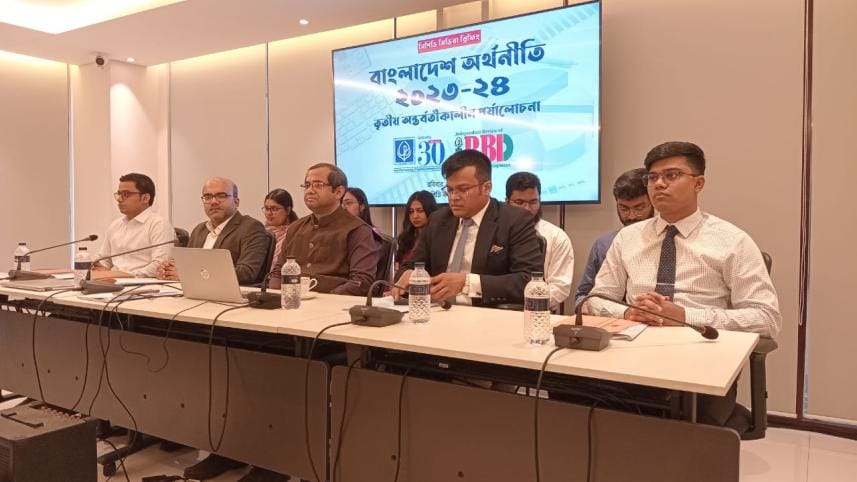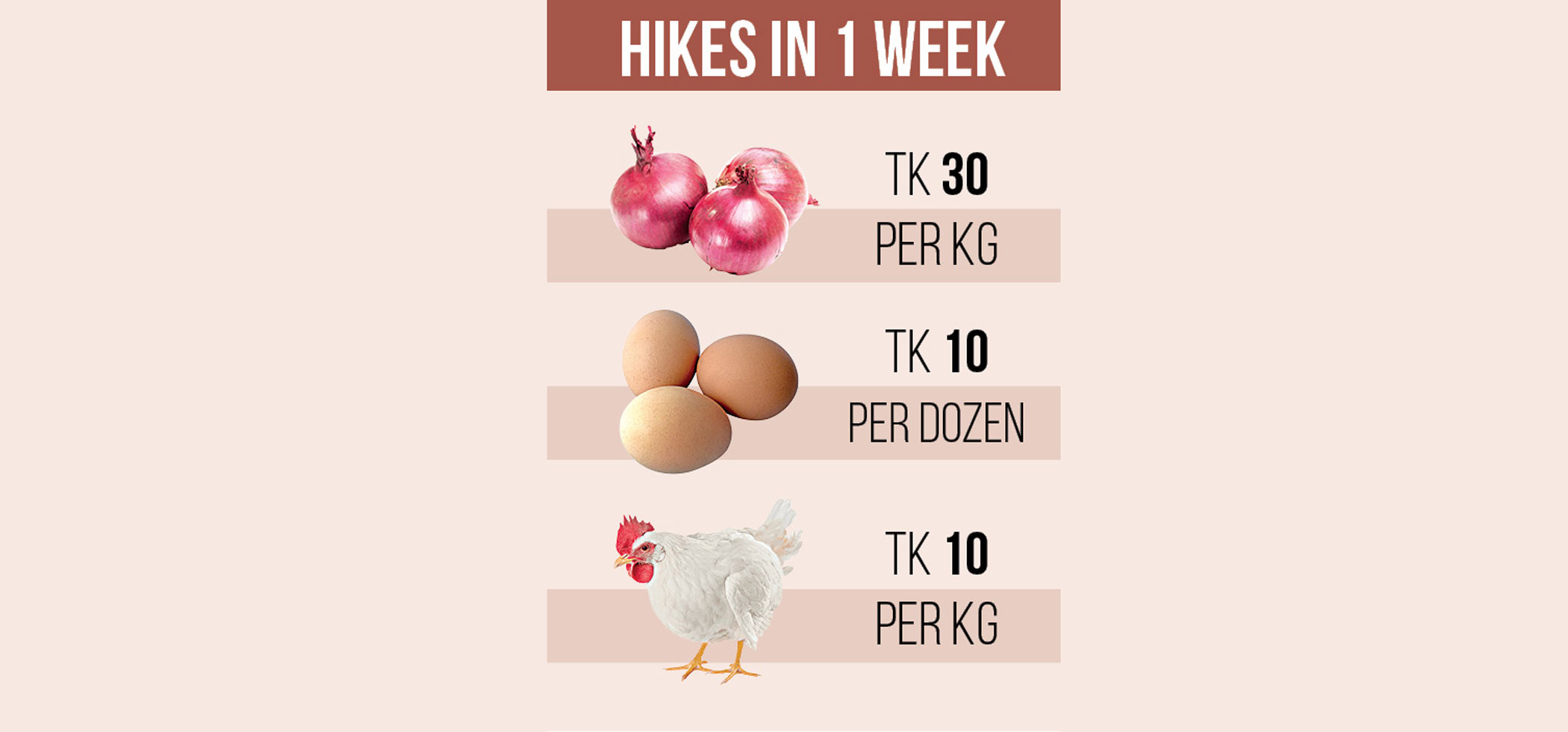High prices make essentials luxury items: CPD

Prices of various essential items have gone up to the extent that they seem luxury goods for many people, particularly poor and vulnerable people, said the Centre for Policy Dialogue (CPD) today.
The independent think tank came up with the observation as the consumer prices remain stubbornly high—more than 9 percent for over a year, showing the failure of the government's policies and measures to contain the prices.
Food prices remain volatile. In April 2023, food inflation was 9 percent. It peaked at 13 percent in August 2023 before slipping to 9 percent in February 2024. It was 10 percent in April this year.
At a media briefing to share the review of the state of Bangladesh's economy at its office, the CPD said the average price of coarse rice, consumed mostly by low-income people, increased by 30 percent from Tk 40 per kg to Tk 52 per kg, between 1 January 2019 and 19 May 2024.
The prices of fine variety rice known as Miniket increased by 17 percent from Tk 58 per kg to Tk 68. The average price of Pijam increased by 15 percent to Tk 55 per kg, it said.
Citing its previous reports, the CPD said the price of three common types of rice in Dhaka has been consistently higher than that of Thai and Vietnamese rice.
About soybean oil, the CPD said as of April, the price of soyabean oil in the world market was Tk 105 per litre, lower than the prevailing price in the Bangladesh market.
The price of sugar in the European Union market was Tk 39 per kg whereas it was Tk 96 in the US market and Tk 50 per kg in the world market.
All of which were lower than the prevailing price in the Bangladesh market, it said.
"It appears that the essential commodities have turned out to be luxury items," said CPD Research Director Khondaker Golam Moazzzem at the briefing, stressing containing inflation in the coming fiscal year.
The CPD said the Bangladesh economy is currently under significant strain due to several ongoing challenges, therefore restoring macroeconomic stability should be the main focus in the budget.
"Instead of the GDP growth, protecting the interests of vulnerable and the disadvantaged groups should be the priority of the policymakers," said Moazzem.
Policymakers must also offer concrete measures to give respite to the inflation-afflicted common people with limited income, said the think tank.
"Therefore, the macroeconomic framework for the upcoming FY25 should continue to focus on curbing inflation and stabilising the exchange rate."
It said the performance of the Bangladesh economy in the first 10 months of FY24 indicates that the remaining months of the fiscal year will continue to face ongoing challenges despite some positive policy measures initiated by the Bangladesh Bank.
"This is because it takes a while to see the outcome of any policy. However, the effectiveness of any policy also depends on complementary policies in other areas."



 For all latest news, follow The Daily Star's Google News channel.
For all latest news, follow The Daily Star's Google News channel. 
Comments